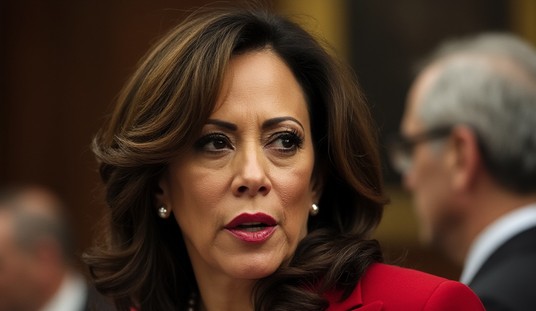Could a news site rating system provide newbie readers with some guidance on veracity and honesty? In theory, yes. In practice -- no, and the power inherent in it is ripe for corruption. And either way, the idea is predicated on people not being smart enough to tell the difference on their own, a profoundly elitist and nonsensical basis for anything other than outright censorship.
Jonathan Turley has tangled the past few days with NewsGuard, a supposedly fairer version of the thoroughly politicized Global Disinformation Index. After receiving notice recently that NewsGuard intended on giving Turley one of its "nutrition labels," Turley wrote that "the most chilling words today [are] 'I'm from NewsGuard and I am here to rate you." He questioned the motives of its founders, and also the entire idea of rating sites based on subjective measures:
Conservatives have long accused the company of targeting conservative and libertarian sites and carrying out the agenda of its co-founder Steven Brill. Conversely, many media outlets have heralded his efforts to identify disinformation sites for advertisers and agencies.
Brill and his co-founder, L. Gordon Crovitz, want their company to be the media version of the Standard & Poor’s rating for financial institutions. However, unlike the S&P, which looks at financial reports, NewsGuard rates highly subjective judgments like “credibility” based on whether they publish “clearly and significantly false or egregiously misleading” information. They even offer a “Nutrition Label” for consumers of information.
Of course, what Brill considers nutritious may not be the preferred diet of many in the country. But they might not get a choice since the goal is to allow other companies and carriers to use the ratings to disfavor or censor non-nutritious sites.
The rating of sites is arguably the most effective way of silencing or marginalizing opposing views.
Crovitz sent Turley a response to these criticisms, both specific and general, which Turley posted in full without commentary. (He posted a separate response, to which we'll get in short order.) Crovitz argued that he and Brill had launched NewsGuard as a free-market alternative to the GDI, and that their interest is strictly on applying basic fact-checking and correction ethics to news and commentary organizations. In fact, Crovitz assured Turley that NewsGuard was "apolitical":
First, we launched NewsGuard in 2018 as an alternative either to the Silicon Valley platforms secretly putting their thumbs on the scale for news and information sites or for calls to have the government censor social media and other online speech. Digital platforms were (and are) secretly rating news and information websites, with no disclosure about their criteria and no way for the people running the websites even to find out how they were rated. The only other entity rating news and information sites at the time we launched was GDI, which as you have written is a left-wing advocacy group–which like the digital platforms does not disclose its criteria or let publishers know how they are rated (except when information escapes such as the top 10 list of “risky” sites, which as you noted are all conservative or libertarian sites).
As I have written as a (libertarian-leaning) conservative former publisher, including in this recent Washington Examiner article, I wouldn’t trust the platforms or a left-wing advocacy group either. We launched NewsGuard as the transparent and apolitical alternative, with the goal of giving news consumers basic information about websites they encounter online.
Allow me to offer my own perspective on this claim. As senior and then managing editor, I interacted with NewsGuard for a while, and to be fair they gave us a pretty high rating for a commentary site at the time. I had read about the premise of NewsGuard and wondered whether it would work as advertised. However, as time wore on, I began to realize that their focus always fell on the most contentious issues -- ie, the issues that painted progressives in a bad light -- and their "fact checking" became increasingly tendentious to the point of trollery.
The breaking point came in April 2023, when David wrote a critical analysis of Harvard Medical's plan to teach future doctors how to care for LGBTQ ... infants. This first came to David's attention via The College Fix, and David reproduced the curriculum description from Harvard itself via a screen capture. He even underlined the passage that declared, "Clinical exposure and education will focus on serving gender and sexual minority people across the lifespan, from infants to older adults."
That prompted this query from NewsGuard's "analyst":
Harvard responded to this and similar articles with a statement explaining that the course teaches about the rare cases in which babies are born intersex, that is, with an anatomy that does not fit the official definitions of female or male. Harvard’s statement said that providing “care for infants refers specifically to physical variations in sex development that arise in utero and are present at birth. These include chromosomal, gonadal, and anatomical variations, all of which are relevant to medical care and treatment to ensure healthy development.” Can you comment on why HotAir.com did not correct its story after Harvard’s clarification?
After conferring with an incredulous David, who wondered how NewsGuard overlooked the actual course description, I sent the following response to NewsGuard's "analyst":
The post includes the course description from Harvard (as a screen capture at time of publication) which does not make *any* mention of "intersex infants." The actual description of the course reads:
"Many of these patients identify as lesbian, gay, bisexual, transgender, queer, intersex or asexual (LGBTQIA+). Clinical exposure and education will focus on serving gender and sexual minority people across the lifespan, from infants to older adults."
The term "identify" is applied to the lifespan spectrum as are all of the other descriptors, which leads to the conclusion that Harvard thinks infants "identify" as any or all of these categories. Furthermore, "intersex" is an actual medical condition, not an "identity," especially in how Harvard attempted to defend itself in this case. This is, in my view, fair game for criticism, especially considering that Harvard could be expected to make itself more clear if it intended to convey any other meaning.
There was no misrepresentation of the material; Harvard's response was arguably dishonest, while our presentation of their material was accurate. Since this seemed fairly obvious to me, I expected NewsGuard to drop it.
Instead, the "analyst" sent me this snotty and unprofessional response:
On this particular case, I hear your point that Harvard wasn't being clear about its meaning. True enough. So I assume you are saying that David Strom knew what Harvard actually meant, but he was poking fun at Harvard's inability to express itself clearly on that topic. Is that right? And if so, he expected that his readers would know the article was written in jest. Am I getting this right? The article was satire, correct?
I've gotten smarter responses from trolls on Twitter than this. This wasn't a request to consult on fact checking or source usage. NewsGuard's "analyst" wanted to exercise editorial control over our content, and implied that the use of their rating system to get material taken down or retracted.
And that's when we stopped cooperating with NewsGuard, in April of last year. They don't operate on an "apolitical" basis, nor do they encourage any real collaboration to improve journalistic ethics. They have positioned themselves as an arbiter in that field mainly through clever marketing, but they're not much different from GDI in approach or partisanship. They want to use that market position to bully people into shutting up, and when that doesn't suffice, they use their "nutrition label" to undercut the reach of websites they don't like that offer opinions that they oppose. It's as simple as that.
Why didn't I write about it at the time? David wanted me to do so, and perhaps I should have. At the time, though, we were fighting other battles against government-influenced Big Tech censorship efforts, and NewsGuard seemed like small potatoes. Watching them go after Professor Turley the last couple of days, who is one of the more careful opinion journalists in the field, caught my attention -- and the response from Crovitz re-fueled my anger over our experiences.
Perhaps Crovitz is unaware of how his organization operates in reality, as opposed to his theoretical vision for NewsGuard. I don't want to accuse him of dishonesty without more information. But the entire concept of NewsGuard is a dishonest deceit, based on the idea that readers can't just follow links and check assumptions on their own. Their "nutrition label" is nothing more than another criticism on the Internet, one that has an added deceit of some sort of expertise that their interactions with us belie. Such a vehicle would almost certainly turn into a punitive exercise predicated on the political and personal motivations of its "analysts." If Crovitz couldn't deduce that up front, then he certainly should be recognizing it now.
If Crovitz wants the name of the "analyst" behind my interactions with NewsGuard, he can reach out to me. I've saved these e-mails for a reason. I have chosen not to use her name here because that was not the nature of the correspondence, but I have no problem passing that information along to Crovitz if he chooses to seriously rethink the premise of his project.
To that argument, I'll leave the final word with Professor Turley in his own response to Crovitz:
The staff will determine if it believes that a site shows a tendency to “egregiously distort or misrepresent information.”
The staff decides if information is false and, if it is considered false by NewsGuard, whether the site “identifies errors and publishes clarifications and corrections, transparently acknowledges errors, and does not regularly leave significant false content uncorrected.” Thus, if you disagree with the claims of falsity or view the statement as opinion, the failure to correct the statement will result in additional penalties.
The site will also determine if it finds the sources used by a site to be “credible” and whether “they … egregiously distort or misrepresent information to make an argument or report on a subject.”
If the site decides that there are errors, it will lower ratings if the site does not “transparently acknowledges errors, and does not regularly leave significant false content uncorrected.”
The company pledges to combat “misinformation” and “false narratives.”
We have seen mainstream media use these very terms to engage in highly biased coverages, including labeling true stories or viewpoints “disinformation.”
Given these terms and the history of their use in the media, NewsGuards assurances boil down to “trust us we’re NewsGuard.” GDI made the same assurances.
Indeed. Read it all, and marvel at how elites believe that you can't think for yourselves, follw links, or find opposing opinions without their hand-holding. I don't call it a dishonest deceit just for the purposes of alliteration.
Update: Small edit after publication to clarify David's objection to the query. The course description did contain the word "intersex," but that was not the context of infants' "identity" issues, and the word was not applied to infants in the description anyway.







Join the conversation as a VIP Member